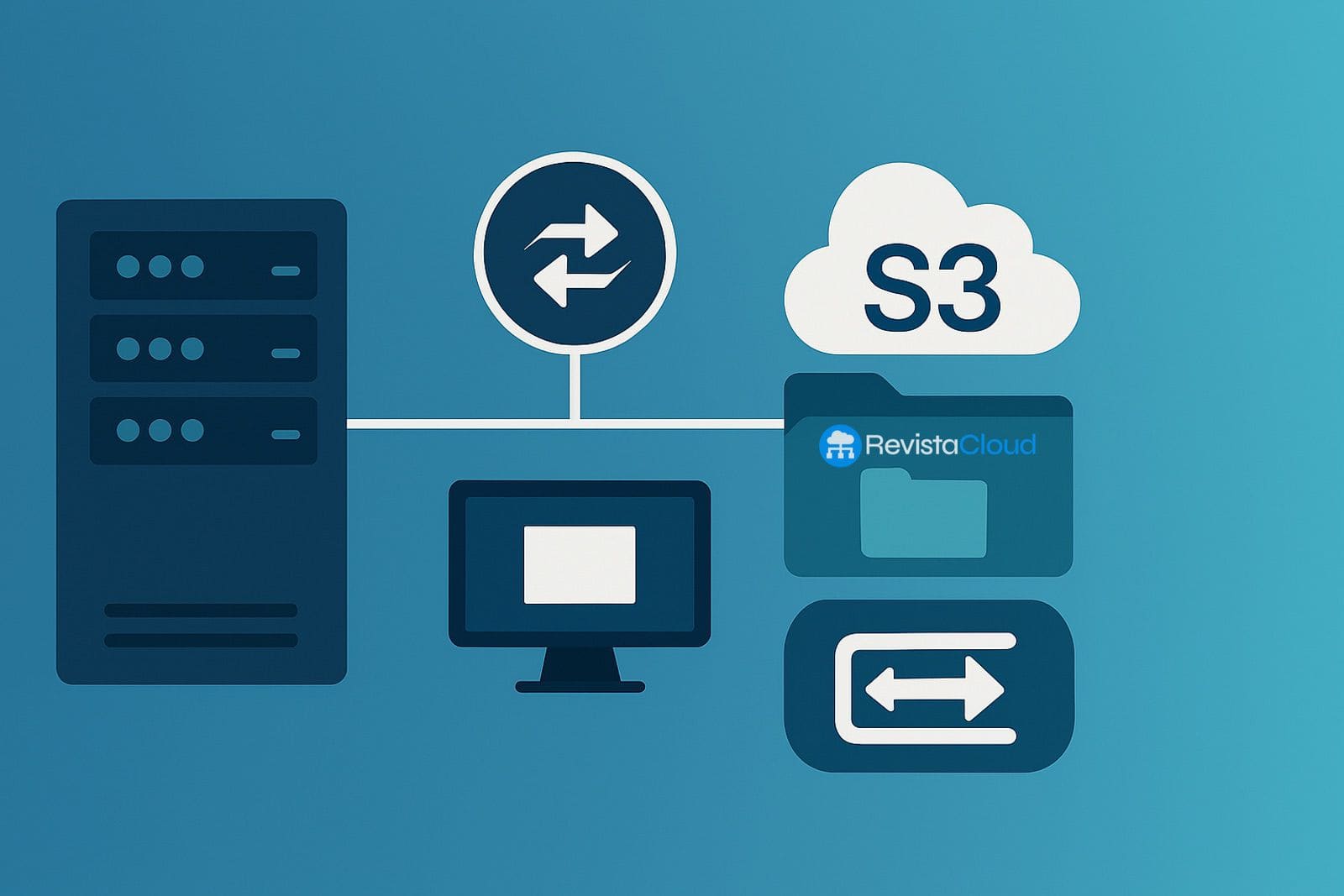Cloud storage has become the cornerstone of the digital world, for both individual users and large companies. Its role was crucial during the pandemic and remains essential in a world where remote work, artificial intelligence, and massive data analysis require flexible, secure, and scalable solutions.
In this updated ranking, we present the 12 best cloud storage companies in 2025, prioritizing not only their infrastructure and features but also their focus on competitive pricing, privacy, data sovereignty, and global performance. Notably, Wasabi and Hetzner lead this list with their differentiated and growing offerings.
1. Wasabi
- CEO: Michael Welts (interim)
- Founded: 2017
- Headquarters: Boston, USA
Wasabi has made a strong entry as a cost-effective and straightforward alternative to the major players. With a policy of no data egress fees and no hidden charges, it positions itself as a simple, high-performance, and highly profitable solution for enterprise storage.
Its compatibility with the Amazon S3 API allows for agile migration from AWS, and its focus on data sovereignty (with data centers in Europe, the USA, and Asia) makes it increasingly attractive for SMEs, public institutions, and tech startups.
2. Hetzner
- CEO: Martin Hetzner
- Founded: 1997
- Headquarters: Gunzenhausen, Germany
Hetzner offers one of the most competitive solutions in Europe in terms of price and performance. Its cloud storage service (Hetzner Storage Boxes and Hetzner Storage Share) is ideal for users looking for professional performance without inflated costs.
With 100% of its servers located in Germany and Finland, it strictly complies with GDPR and focuses on energy efficiency. It is especially valued among developers, European companies, and privacy enthusiasts.
3. Amazon Web Services (AWS)
- CEO: Matt Garman
- Founded: 2006
- Headquarters: Seattle, USA
AWS dominates the market thanks to its Amazon S3 service, which serves as the backbone for thousands of global companies. It offers virtually unlimited scalability, global availability, and durability of 99.999999999%, making it ideal for data lakes, AI applications, backups, and massive archiving.
Although it is more oriented towards technical or corporate clients, its ecosystem and reliability place it on the podium year after year.
4. Microsoft (OneDrive & Azure)
- CEO: Satya Nadella
- Founded: 1975
- Headquarters: Washington, USA
Microsoft combines OneDrive, integrated into Windows and Microsoft 365, with its enterprise cloud offering, Azure. The latter is the second-largest cloud platform in the world and offers solutions ranging from blob storage to collaboration tools and AI.
It is especially powerful for organizations working with Office, Teams, and Power Platform, thanks to its unified ecosystem.
5. Google (Google Drive & Google Cloud)
- CEO: Sundar Pichai
- Founded: 1998 (Google), 2008 (Google Cloud)
- Headquarters: California, USA
Google Drive is one of the most popular services among users and businesses, offering 15 GB of free storage, real-time collaboration, and an intuitive interface. Google Cloud, its professional branch, stands out for its integration with artificial intelligence, machine learning, and advanced analytics tools.
It is ideal for tech projects, education, and demanding collaborative environments.
6. IDrive
- CEO: Raghu Kulkarni
- Founded: 1995
- Headquarters: California, USA
IDrive stands out for offering one of the best prices per terabyte in the market. Its strong point is the protection of multiple devices (computers, mobile phones, and servers) under a single account.
It includes complete disk backups, continuous synchronization, and physical disk shipping for quick restoration—all with AES-256 encryption.
7. Dropbox
- CEO: Drew Houston
- Founded: 2007
- Headquarters: California, USA
Dropbox was a pioneer in personal cloud storage. Its simple interface and impeccable performance keep it a favorite in many environments, despite only offering 2 GB of free storage.
With tools like Dropbox Paper, it is also an agile collaboration space for work teams.
8. Apple iCloud
- CEO: Tim Cook
- Founded: 2011
- Headquarters: California, USA
iCloud is the cornerstone of the Apple ecosystem. Without prior setup, it automatically synchronizes photos, notes, calendars, and documents between iPhone, iPad, and Mac.
Its advanced features (like Private Relay or Hide My Email in iCloud+) reinforce its security, although it remains a closed and limited environment for Android or Windows users.
9. Sync.com
- CEO: Thomas Savundra
- Founded: 2011
- Headquarters: Toronto, Canada
Sync.com offers end-to-end encryption as standard across all its plans, even the free one. It is hosted in Canada, under strict privacy laws like PIPEDA, making it attractive for regulated sectors.
It includes version history for one year, with no file size limit and compliance with standards such as HIPAA.
10. pCloud
- CEO: Tunio Zafer
- Founded: 2013
- Headquarters: Baar, Switzerland
pCloud is known for its one-time lifetime payment option, eliminating monthly fees. Its interface is modern, with 10 GB of free storage, integrated media playback, and optional encryption via pCloud Crypto.
It is ideal for users seeking independence from tech giants and a reliable platform located in Switzerland.
11. Box
- CEO: Aaron Levie
- Founded: 2005
- Headquarters: California, USA
Box is focused on the business world, offering features for document management, regulatory compliance (GDPR, HIPAA), electronic signatures, and custom workflows.
It integrates with over 1,500 services, including Microsoft 365, Salesforce, and Google Workspace.
12. Mega
- CEO: Shane Te Pou
- Founded: 2013
- Headquarters: Auckland, New Zealand
Mega offers 20 GB of free storage with zero-knowledge encryption, which means that even the company cannot access your files.
Although its collaboration capabilities are basic, it is one of the most secure and accessible options for those who prioritize privacy over shared productivity.
Conclusion
From open alternatives like Wasabi or Hetzner to integrated solutions in operating systems like OneDrive or iCloud, the cloud storage market in 2025 is diverse, competitive, and expanding.
The choice will depend on the balance between privacy, performance, compatibility, and cost. With the rise of remote work, AI, and digital sovereignty, choosing wisely where and how we store our data has never been more important.

